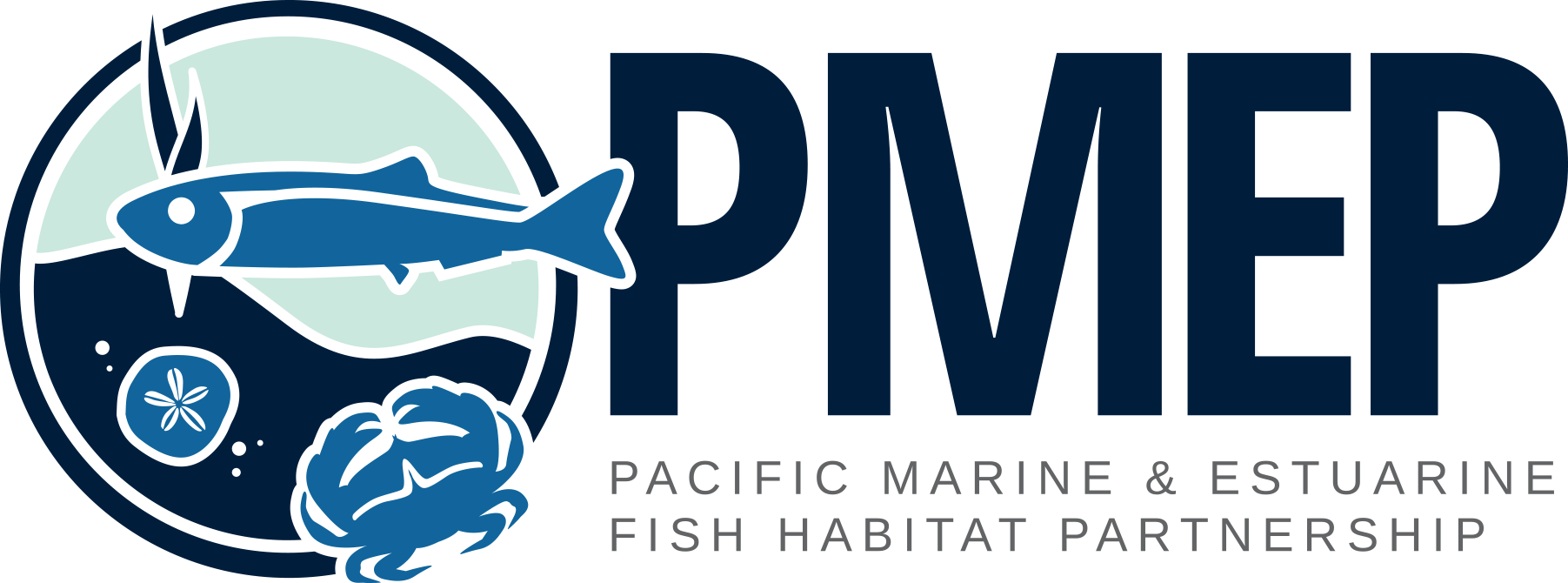Exciting times for our Promoting Effective Estuary Restoration Project! Registeration is open for the May 6 virtual symposium/workshop focusing on Monitoring Guidance, Data Hubs, and Collaborative Platforms. And presentations and recordings from our March 4 Symposium on Blue Carbon and Estuary Restoration are now available. Check out May 6 speaker profiles and registration link and find presentations from March 4 and earlier events on the project page HERE:
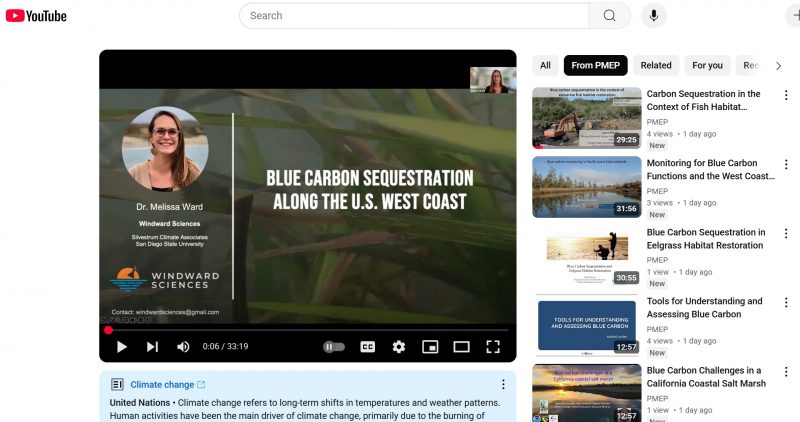
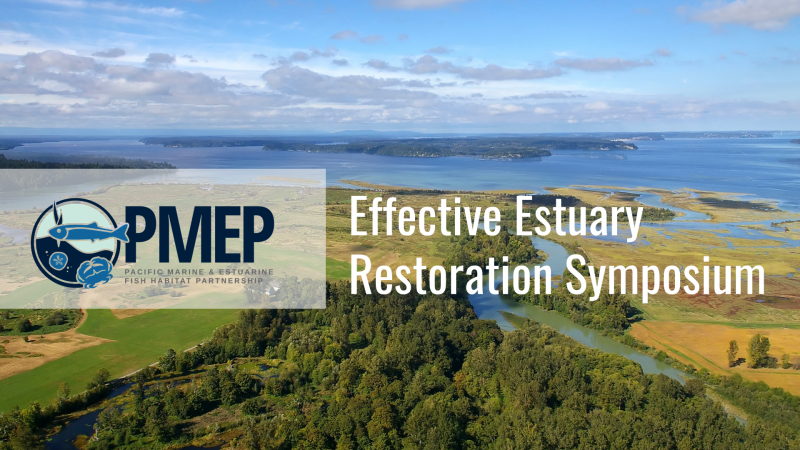
- March 6, 2025
- Joan Drinkwin
- Events
- 0 comments
May 6, 2025
9:00AM – 12:00PM Pacific time
Register HERE!
Exploring the design, methods, and monitoring of estuary restoration along the U.S. West Coast in the context of a changing climate.
This half-day virtual symposium will bring together experts in the field of estuary restoration along the U.S. West Coast to explore tools available to restoration practitioners. Presentations and discussion will cover estuary restoration monitoring guidance, compiled data available online for planning restoration, and collaborative platforms to share information, methods, and best practices for effective estuary restoraion. Case studies from throughout the U.S. West Coast will illustrate the practical use of these tools. Participants will also be surveyed to inform development of additional online resources needed by estuary restoration practitioners. There is no cost to register.
For agendas, speaker spotlights, and more information, visit the Promoting Effective Estuary Restoration project page HERE.

- January 21, 2025
- Joan Drinkwin
- Events
- 0 comments
March 4, 2024
9:30AM – 12:30PM Pacific time
Register HERE.
Exploring the design, methods, and monitoring of estuary restoration along the U.S. West Coast in the context of a changing climate.
This half-day virtual symposium will bring together experts in the field of estuary restoration along the U.S. West Coast to explore the integrating:
Blue Carbon and Fish Habitat Restoration
The symposium is designed to support estuary restoration practitioners and will include opportunities to share techniques, ask questions, and build a community of practice.
For agendas, speaker spotlights, and more information, visit the Promoting Effective Estuary Restoration project page HERE.
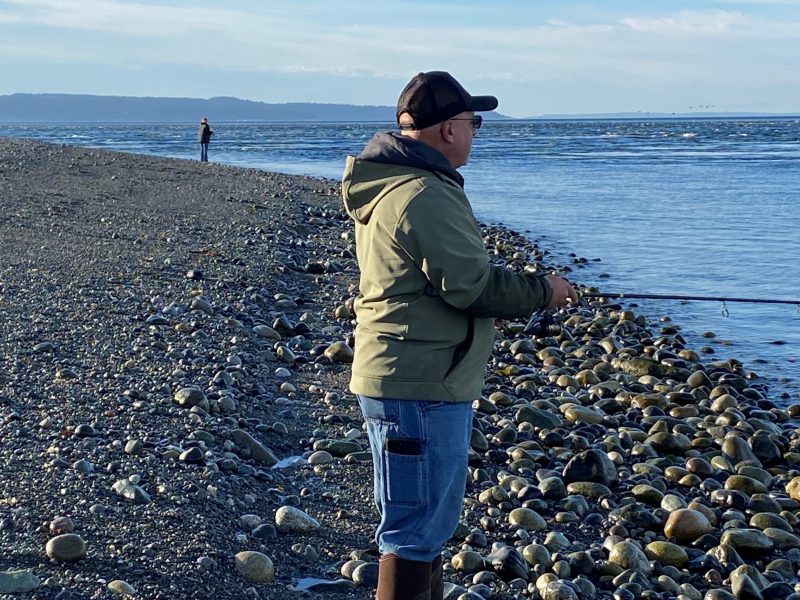
- January 6, 2025
- Joan Drinkwin
- Funding
- 0 comments
The Pacific Marine and Estuarine Fish Habitat Partnership (PMEP) is partnering with NOAA to facilitate proposals for an informal funding opportunity in FY24 for Coastal Fish Habitat Partnership projects that support habitat conservation or restoration and engagement with the recreational fishing community. The total funding available is approximately $150,000.
We are looking for projects that focus on habitat restoration or protection for recreationally important saltwater or diadromous species AND actively engage recreational fishing partners in habitat protection or restoration. This may include, but is not limited to:
a. Direct participation of recreational anglers in habitat projects, including research,
monitoring, and on-the-ground restoration
b. Education and outreach with, by, or for anglers on habitat conservation topics
c. Hosting of an event focused on habitat and recreational fishing opportunity that
engages the recreational fishing community and partners
Sponsors must submit their proposals to PMEP by February 18, 2025 so PMEP can determine its support for the project. Then the project sponsor must submit a completed proposal to NOAA by April 18, 2025.
For the full Request for Proposals and application instructions, go HERE.
Subscribe to our newsletter to ensure you receive announcements of our future RFPs. Subscribe HERE.
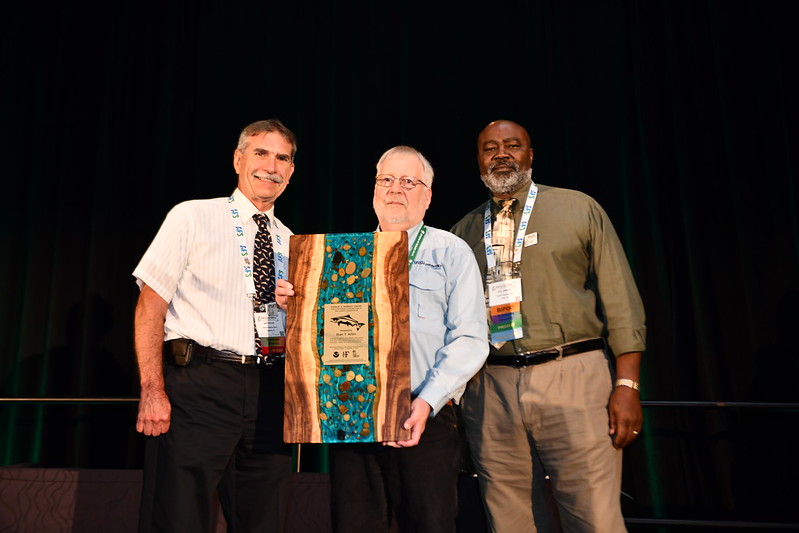
- December 20, 2024
- Joan Drinkwin
- Announcement
- 0 comments
Our own Stan Allen, Pacific Marine Fisheries Commission, was awarded the Stanley A. Moberly Award for Outstanding Contributions in Fish Habitat Conservation at the 2024 American Fisheries Society meeting in Honolulu, Hawai’i. The award was established in 2019 to annually recognize efforts of individuals, groups, or projects with an outstanding, long-term record of success in research, management, policy, communications, education, or other fields that support fish habitat conservation.
Stan has had a long and distinguished career in fisheries starting with Idaho Department of Fish and Game in 1980 as a Biological Aid and working up to the Information Resource Data Manager, where he was responsible for building a consistent and verifiable river database. This work resulted in the protection of over 40,000 miles of streams in the Columbia River Basin from additional hydropower development. Stan has worked at the Pacific States Marine Fisheries Commission since the 1990’s and has been a Senior Program Manager for 31+ years. His work has included the development of the CalFish system to support habitat efforts for anadromous fish and development of StreamNet, a cooperative data effort that has been the foundation for the support of fish conservation in the Pacific Northwest. He has also managed countless fisheries projects, currently including 80 projects with 150-175 employees, such as the reintroduction of salmonids in California Central Valley tributaries, the Klamath River watershed rehabilitation, and Pacific Coast, in particular in California, fish passage barrier identification, removal, and mitigation. He is a long-time National Fish Habitat (NFHP) Board member and now is the Vice Chair of the Board, ensuring NFHP continues its incredible fish habitat conservation work. Stan has been an active member of PMEP committees since PMEP was initally formed as a fish habitat partnership in 2012.
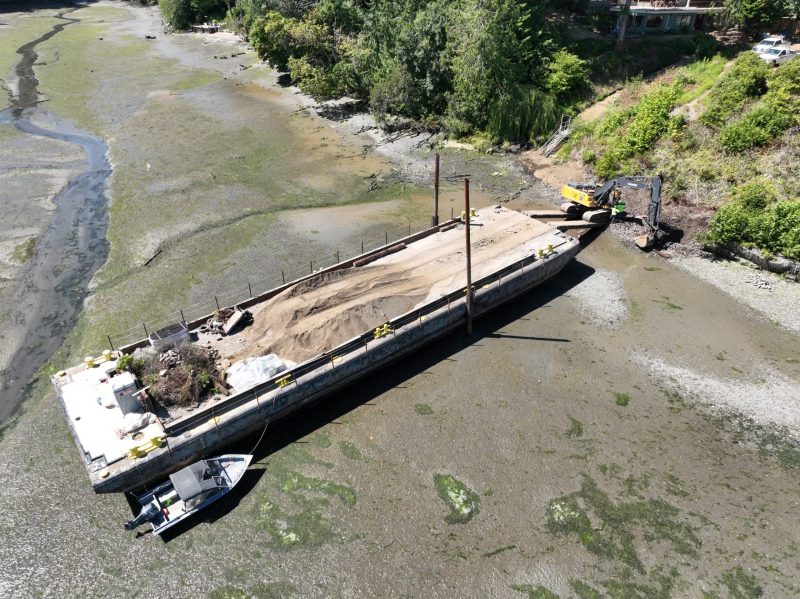
- December 3, 2024
- Joan Drinkwin
- Announcement
- 0 comments
The PMEP-funded project, Zangle Cove Bulkhead Removal, was named a National Fish Habitat Partnership 2024 Waters to Watch Project. Managed by the Thurston Conservation Districti, this project removed 200 linear foot of bulkhead along the marine shoreline of South Puget Sound. The project restored spawning habitat for beach spawning fish (e.g., surf smelt and sand lance), restored shoreline sediment transport processes, and restored shoreline riparian vegetation providing multi-species benefits. The project was implemented on private residential waterfront property near Olympia, Washington. It is an important example of regional work underway to reduce harm from hard armoring on private waterfront property throughout Puget Sound. Numerous organizations are operating under the umbrella of the Shore Friendly program, supported by the Washington Department of Fish and Wildlife Estuary and Salmon Restoration Program and other partners. The Shore Friendly program is a multi-organizational effort that aims to motivate residents living on marine shorelines to remove bulkheads and preserve natural shorelines, in order to support recovery of Puget Sound’s salmon and orca populations (among other species). Shore Friendly promotes a shoreline stewardship ethic that embraces natural coastal processes that support nearshore ecology.
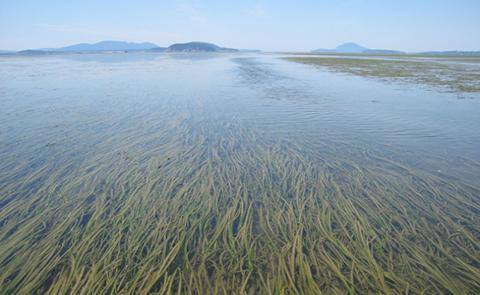
- October 6, 2024
- Joan Drinkwin
- Announcement, Funding
- 0 comments
Deadline for proposal submission is December 2, 2024.
PMEP will award an estimated $250,000-$350,000 in FY2026 for projects that advance its mission. The exact amount of funding available varies annually and is not known at this time. In an effort to fund a diverse portfolio of projects, strong project proposals that request less than $100,000 are preferred. However, proposals of particular merit may be funded at a higher level, at PMEP’s discretion.
PMEP is seeking project proposals that restore, enhance, and protect habitats for fish within estuarine and nearshore marine systems or that increase understanding of fish habitats in estuarine and nearshore habitats along the U.S. West Coast (Washington, Oregon, and California).
For nearshore-focused projects, priority will be given to assessment and restoration projects that address critical challenges to nearshore marine habitats, with a focus on habitats such as kelp forests, seagrass, rocky reefs, biogenic structure (native oysters, sand dollar beds, tube worm reefs), and intertidal and beach spawning habitat. Projects must also clearly identify benefit to fish species.
For estuary-focused projects, priority will be given to projects benefiting smaller estuarine systems defined as having an Estuary Size Class of 0-250 acres in the PMEP Estuary Explorer data tool http://estuaries.pacificfishhabitat.org/explore. However, worthy projects that benefit larger estuarine or nearshore systems will still be considered. Estuary projects must demonstrate benefits to PMEP focal species.
Find the full Request for Proposals and application instructions HERE.

- October 1, 2024
- Joan Drinkwin
- Uncategorized
- 0 comments
These half-day symposiums are the second and third in a series of virtual symposiums bringing together experts in the field of estuary restoration along the U.S. West Coast to explore effective estuary restoration topics.
2025 symposium will explore:
- Blue Carbon in the context of fish habitat
- Data and monitoring protocols and guidance
- Collaborative platforms for restoration practitioners.
The symposiums are designed to support estuary restoration practitioners and will include opportunities to share techniques, ask questions, and build a community of practice.
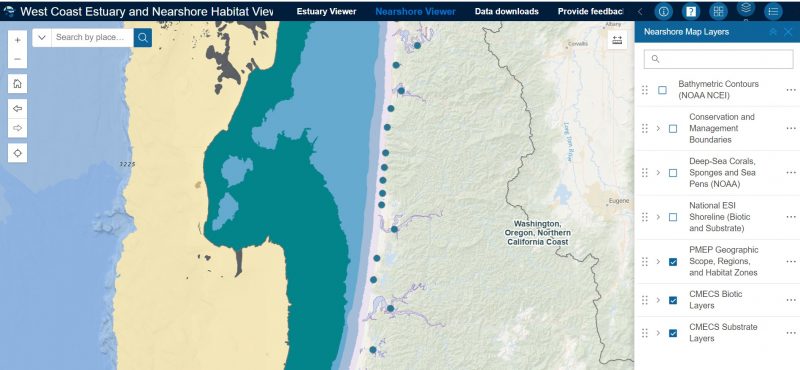
PMEP’s new West Coast Estuary and Nearshore Habitat Viewer is available now. Launched at the recent American Fisheries Society meeting, this new interactive tool combines our estuary datasets with our new nearshore habitat datasets into one easy-to-use platform. The Viewer supports users importing their own spatial data as well as data readily available at ArcGIS Online. Combine these with the PMEP data layers to compare, overlay, and synthesize information to support resource management, habitat conservation and restoration goal setting. PMEP data layers are also available for download. Find the Viewer and PMEP data HERE.

- September 6, 2024
- Joan Drinkwin
- Uncategorized
- 0 comments
Come learn about PMEP and other fish habitat partnerships around the country at the American Fisheries Society meeting in Honolulu. We’ll be participating in a symposium Tuesday highlighting the National Fish Habitat Partnership and multiple fish habitat partnerships. The session, Local, Regional, and National Collaboration to Conserve Aquatic Habitats, runs all day in room 307AB.
